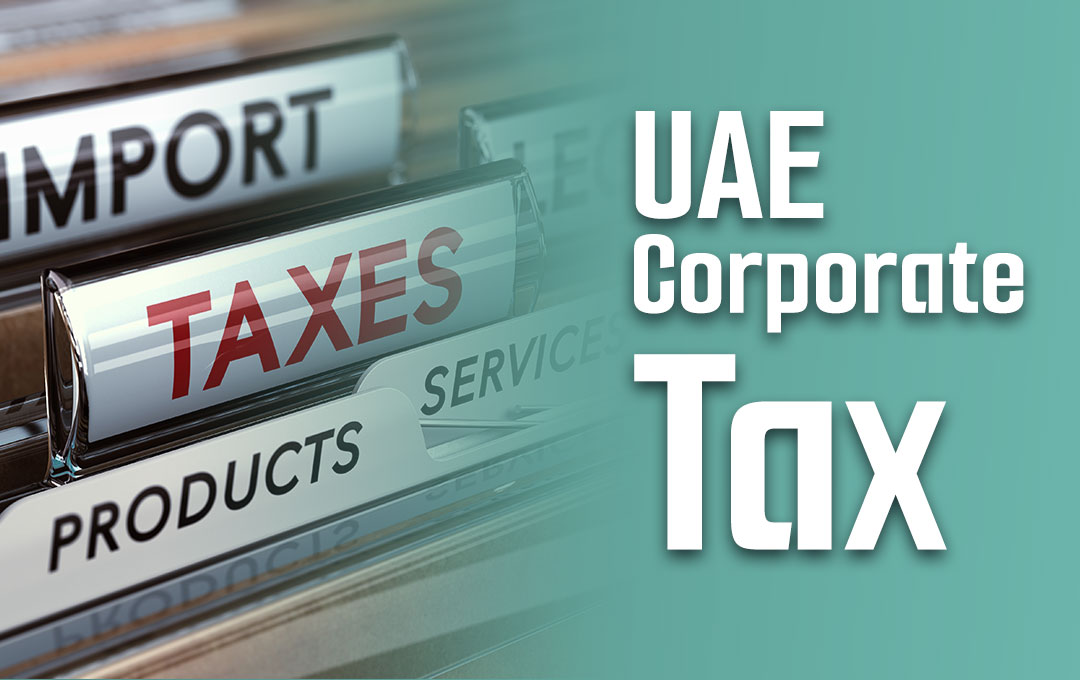In the past, the United Arab Emirates peoples didn’t have to pay much tax on their earnings, and most businesses didn’t pay corporate tax in UAE. The government mainly got money from companies that were involved in getting oil from the ground. These companies had to give about half of their earnings as tax. Foreign banks also had to pay 20% tax on the money they made, and there were some taxes for hotels and restaurants in Dubai.
But recently, things have changed. The United Arab Emirates wants to have more types of businesses, not just ones that deal with oil. So, now there are more businesses that don’t have to pay tax. Since the government expects to get less money from oil and the economy is growing fast, they decided to start taking some money from businesses’ earnings. This will help them invest more in important things like buildings, schools, and hospitals.
In 2018, they added a new tax called Value Added Tax (VAT). This tax is 5% of the price when people buy things. Then, in January 2022, the government said they will also start making businesses pay a tax. This tax will be 9% of the money they make, and it will start next year.
There’s another reason for this new tax on businesses. The United Arab Emirates wants to be more like other countries when it comes to taxes. Many advanced countries make businesses pay taxes, and by having a 9% tax, the UAE is getting closer to what other countries do. The 9% tax is still much lower than the taxes in most rich countries, which are usually around 20%. This new tax also stops companies from trying to avoid paying taxes by using the UAE as a place to hide their money. This helps make sure that taxes are fair for everyone around the world.
What is Corporate Tax?

Corporate tax is a type of tax that businesses or corporations have to pay on the money they earn. It’s like a portion of their profits that goes to the government. This tax is usually calculated based on the company’s earnings, and the rate at which they have to pay can vary from place to place. The government uses the money from corporate taxes to fund public services and projects that benefit the country as a whole, like building infrastructure, providing education, and offering healthcare services.
9% Corporate Tax in UAE
In 2023, the UAE made a big change to its financial rules by introducing a 9% corporate tax. This tax applies to businesses that make profits over AED 375,000. This shift is important because it’s different from the previous tax-free system. Despite this change, the UAE’s 9% corporate tax rate is still quite competitive compared to other countries that have much higher corporate tax rates. This makes the UAE an attractive place for businesses looking for a good economic environment.
The new corporate tax in UAE shows that the UAE is committed to growing its economy in new ways and ensuring lasting success. By introducing this tax, the government is aiming to rely less on money from oil, which can be unpredictable due to market changes. The money collected from corporate taxes will be used for public services, building things like roads and buildings, and supporting projects that will help the country keep moving forward.
As the UAE introduces this new tax and keeps personal income tax-free, it’s important for both businesses and individuals to stay informed about the latest rules. This balance between corporate tax and tax-free income highlights how the UAE is smartly managing its finances while maintaining its reputation as a global hub for business.
Impact on the Economy
For a long time, the UAE’s economy depended mainly on money from selling oil. This made the economy vulnerable to changes in the global oil market. Now, with the new tax system, the government wants to get money from different sources, so it’s not just relying on oil. This change will give the government more money to support important things like public services, building things like roads, and other projects that help the economy grow. Also, this new tax will show that the UAE is a well-regulated and stable place to do business.
Implications for Businesses
The incorporation of corporate tax in UAE‘s fiscal landscape could wield several repercussions for businesses functioning within the nation’s borders. Enterprises garnering profits or taxable income exceeding AED 375,000 will now be subject to a 9% corporate tax rate, conceivably trimming their earnings. However, it’s worth noting that the UAE’s corporate tax rates remain among the lowest globally.
Conversely, this fresh tax regime could stimulate competitiveness among businesses in the market. They are now obliged to factor in this aspect while determining pricing for their goods and services.
Scope of the UAE Corporate Tax
Under the innovative structure, the corporate tax umbrella encompasses:
- Enterprises and individuals engaged in commercial undertakings
- Businesses within Free Zones (provided they adhere to regulatory prerequisites)
- Overseas companies and individuals—subject to CT if their commercial activities are efficiently managed and supervised within the UAE.
Exempted Entities:
- Automatically exempt: Government entities
- Exempt upon being listed in a cabinet decree: Government-controlled entities and qualifying public benefit entities.
- Exempt after notifying the Ministry of Finance (and meeting specific conditions): Extractive and non-extractive natural resource businesses.
- Exempt following approval by FTA, contingent on fulfilling certain conditions: public and private pension and social security funds, qualifying investment funds, wholly-owned and controlled UAE subsidiaries of government entities, government-controlled entities, qualifying investment funds, or public/private pension or social security funds.
- CT does not apply to dividends or capital gains accrued by a UAE business from qualifying shareholdings.
- Qualifying intra-group transactions and reorganizations are excluded from CT, given compliance with limited time.
Corporate Tax for Non-Resident Entities

To ensure equity between local and foreign corporations profiting from UAE properties, the Ministry of Finance has introduced Corporate Tax for Non-Residents. This mandates that foreign enterprises and legal entities must remit taxes on income generated from properties (such as buildings or land) located within the UAE. This directive encompasses properties utilized for business purposes as well as those held for investment.
Free Zone Dynamics
In jurisdictions encompassing Free Zones, companies can avail a 0% corporate tax advantage if they achieve qualifying revenue (contingent on other conditions). As defined by the Ministry of Finance, Qualifying income encompasses proceeds from dealings with other Free Zone entities and income derived from specified qualifying activities.
Qualifying Activities:
- Fabrication of goods or materials
- Processing of goods or materials
- Ownership of shares and other securities
- Ship ownership, management, and operation
- Reinsurance, fund management, wealth and investment management services subject to competent authority oversight
- Provision of headquarters services to related entities
- Treasury and financing services to related entities
- Aircraft financing and leasing, including engines and rotatable components
- Logistic services
- Distribution within/from a designated zone meeting stipulated conditions and any activities auxiliary to aforementioned pursuits.
Conversely, excluded activities do not align with qualifying income, whether in collaboration with a Free Zone entity or as a facet of a qualifying activity.
Excluded Activities:
- Activities involving natural persons, with exceptions
- Specific regulated financial service undertakings
- Ownership or utilization of immovable property (excluding transactions with Free Zone Persons pertaining to commercial property in Free Zones)
- Ownership or utilization of intellectual property assets
- Activities ancillary to the above
A Free Zone entity failing to accrue qualifying income is rendered ineligible for favorable tax treatment unless it satisfies the minimum requirement. To meet these criteria, non-qualifying revenue should not exceed 5% of total revenue or AED 5,000,000, whichever is lower.
Non-Qualifying Revenue
Non-qualifying revenue pertains to income derived from excluded activities or activities not qualifying as Qualifying Activities with non-Free Zone entities. Revenue traceable to the domestic or foreign permanent establishment (PE) of the Free Zone entity, and revenue stemming from immovable property situated in a Free Zone (except dealings with Free Zone persons regarding commercial property), is discounted when computing non-qualifying or overall revenue.
Conditions for Sustaining Substantive Presence
Maintaining substantive presence obliges Free Zone entities to fulfill specific conditions, including:
- Conducting core revenue-generating undertakings within the Free Zone
- Possessing substantial assets
- Maintaining a sufficient complement of qualified employees
- Incurring an adequate volume of operational expenses.
A qualifying Free Zone entity’s failure to meet any stipulated condition results in disqualification, effective for a five-year period.
Steering through UAE’s Corporate Tax Transformations
Apprehending the ramifications of the novel tax structure and devising strategies to mitigate its influence is of paramount significance for enterprises.
Consider these guidelines to navigate the repercussions of UAE’s 2023 corporate tax:
- Scrutinize your commercial operations: Gauge the impact of the fresh corporate tax on your enterprise. This analysis enables you to gauge potential costs and fine-tune financial projections.
- Implement tax-centric strategies: Mitigate the influence of the newfound corporate tax by adopting strategies such as optimizing your corporate framework, leveraging available deductions and exemptions, and maximizing tax credits.
- Solicit guidance from financial experts: The crux of effective navigation within the novel tax regime lies in seeking insights and counsel from adept tax professionals, ensuring adherence to pertinent regulations.
- Stay abreast of updates: The UAE government consistently updates information concerning the novel corporate tax. Staying informed about the latest modifications equips you to realign your business strategies effectively.

